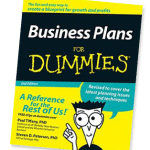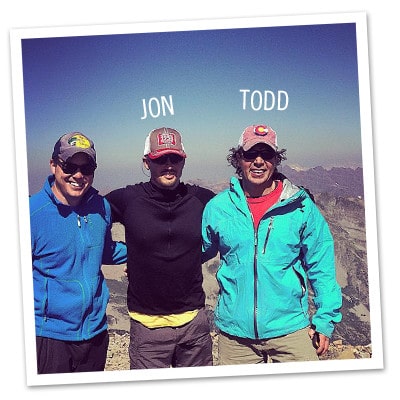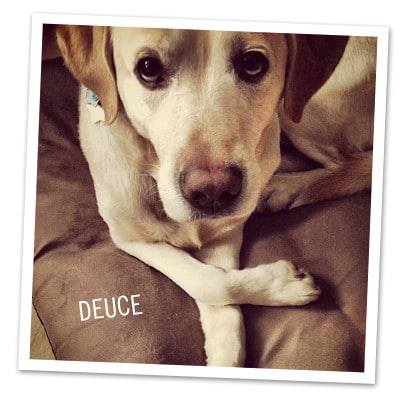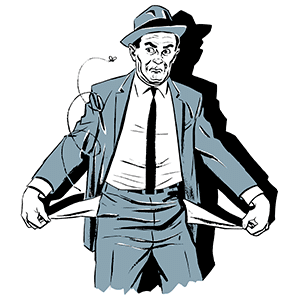Our industrial marketing agency, Gorilla 76, turns ten this July. That’s right — the big 1-0. Surprised? So are we. But then again, we’ve worked hard, caught some well-timed breaks, and most importantly, have been fortunate to be surrounded by an incredible cast of influencers — so maybe it’s not THAT surprising.
In the past ten years, we’ve had to make a lot of decisions. Some have been good. Lots have been bad. Regardless, we’ve done our best to listen and learn from those influencers we’ve been fortunate to know, those folks who are quite a bit smarter than we are and more experienced in this whole “business” thing.
Here are ten of the most important lessons we’ve learned in our first ten years of business and the people behind them.
Know what sets you apart
Influencer: Virginia McDowell, retired President & CEO of Isle of Capri Casinos, Inc.
As told by Jon
We were young. We had a business plan born out of a “Business Plan Kits for Dummies” book. And we had a meeting scheduled with one of the smartest business minds in St. Louis. What could possibly go wrong? The short of it: lots.
As we mentioned in our opening, we’ve been blessed with access to the minds of some really smart folks. Virginia (VA) McDowell, most recently President & CEO of Isle of Capri Casinos, Inc., just happened to be one of those people.
 Joe and I met VA via a board on which we were both involved (bonus lesson for the youngsters: get involved!!), and VA agreed to meet with us so that we could “pick her brain.” We met. Things went well. She requested we send her our business plan … the one that was created from the yellow “Dummies” book. We did such. And with A LOT of confidence.
Joe and I met VA via a board on which we were both involved (bonus lesson for the youngsters: get involved!!), and VA agreed to meet with us so that we could “pick her brain.” We met. Things went well. She requested we send her our business plan … the one that was created from the yellow “Dummies” book. We did such. And with A LOT of confidence.
VA reached out a week or two later — she wanted to meet.
We were all about it. Happy hour at T.G.I. Friday’s was our recommendation. And you thought the “Dummies” part was going to be the only misstep. Anyway, VA showed up with our business plan in hand and it looked like one of my high school math assignments. It was covered in red ink.
From sentence structure to big ideas, she offered opinions and feedback. It was amazing, especially considering she had been traveling nonstop since we met last. We went through all of her suggestions and changes, picked up the tab (actually, I think VA might have picked up the tab — we were that unpolished) and we thought we were good to head home for the evening.
Wrong.
“So this is all great — but what makes you different?”

“Well, um, we’re, we’re a, well, we’re like a big agency with really cool copywriting and cool design capabilities but at a lower cost and less hassle and we’re super nimble because we’re small and the big agencies are evil and no one wants to work with the big agencies because they’re not nimble and have stale copy and design.”
(ten-second pause)
“No. That won’t cut it. What makes you different?”
(ten-year pause)
“We’re an inbound marketing agency for the industrial sector. We help manufacturers, service providers, distributors, builders and their subcontractors grow their businesses online.”
Thank you VA. It took us awhile to finally figure out what you were talking about, but damn — I’m glad we finally did. Since narrowing our focus, our business has grown significantly. We owe much of that success to you.
Do it with passion
Influencer: Derek Mabie, President & Founder of Evolve Digital Labs
As told by Joe
I’ll never forget the afternoon we sat in a Clayton, Missouri conference room full of fiery investment bankers and Derek Mabie, President/Founder of Evolve Digital Labs.
We were pitching business together, but Derek’s approach was quite a bit different from mine. To make a long story short, by the end of a heated two-hour new business meeting, Derek was literally on his feet yelling at our potential clients, telling them why they were wrong about their marketing approach and why they couldn’t afford NOT to hire him (and I suppose us) to be their partners.

I was ready to sneak out the back door. But instead, we all walked out the front door with a big contract and a relationship with a new client.
While Derek’s approach might not have worked with everyone, these guys wanted someone with passion. They wanted someone who was so confident in his ability to help them be successful, that they truly couldn’t afford to not hire him.
My point isn’t that you should always scream at your prospective clients; but success stems from true passion for what you do. If you can’t bring passion to the table, you can’t be great.
Every time I catch up with Derek over lunch or a beer, I leave energized. Ideas are spinning in my head. I feel like I can conquer the world. Meanwhile, Derek has actually started conquering the world, having grown his company from the one-man operation he was eight years ago when I met him into a business that’s made the Inc. 5000 two years running and is one of St. Louis’ fastest growing companies.
You’re the work that you do
Influencer: Mitch Meyers, retired Co-Founder/President & CEO of The Zipatoni Company
As told by Jon
I’d argue Mitch has had the biggest influence on our business. It’d also be poor etiquette not to do so as I eat Easter and Christmas dinner at her house every year.
“Aunt” Mitch Meyers, of Spuds McKenzie and Zipatoni fame, has introduced us to almost half of the people on this list, and has been within two degrees of separation on almost 25% of our current billings. She also was the one who told us to start charging for our work back when we were doing spec work for fun. Yes, I said for fun. It was actually on her porch in the seventh month of 2006 (see where the 76 comes from?) that we decided to start our business.
“You are the work that you do.”
Honestly, I could write a long list of lessons that Mitch has taught us through the years, but perhaps the biggest and most impactful was, “You are the work that you do.” If you do work for big, shiny, cool clients, but it’s crappy work — work that you don’t enjoy — you’ll be a crappy agency. But if you do work you love and work you believe in and work that actually “works,” even if for lesser-known companies, you can be a great agency.
We’ve chosen the latter path and it’s paying off. We love what we do and the companies we do it for. We believe in what we do. And what we do is working for our clients. Mitch — thanks for the impactful advice.
Learn from the people who are doing it right
Influencer: Bob Ruffolo, CEO of IMPACT Branding & Design
As told by Joe
For the past four years, we’ve closely followed what the guys at IMPACT Branding and Design have done as a marketing agency. In many ways, they’ve already become what we’re striving to become.
IMPACT has grown a significant client base from scratch, built an incredibly talented team and consistently delivered exceptional, results-driven work for their clients year over year. They’re viewed as thought leaders in the online marketing world and are the cream of the inbound marketing agency crop.
What I really respect is that more than once, Bob Ruffolo, the CEO at IMPACT, has willingly offered his time to us, answered questions about struggles we’ve had and shared stories of his successes and failures. We’ve eagerly listened and let the knowledge Bob has imparted on us translate into successes for ourselves.
We’re our own company with our own unique client base, niche audience and skill sets. There’s no formula for successfully running Gorilla. But many of the challenges we face have also been faced by others. Thanks to guys like Bob, the trail is becoming easier to hike.

Be a good person first
Influencer: Todd Imming, CMO at The Korte Company
As told by Jon
Through the years, we’ve been fortunate to work with a growing list of great clients. Clients that trust us to do our job, that look to us for advice and ideas, that respect us as business professionals. Joe and I consider ourselves very lucky in this regard, and really, it’s one of the best parts of being at Gorilla. All of our clients have influenced us through the years, but one client and one lesson really comes to mind.
It was three or four years back. I received some bad news from the vet about my yellow lab Deuce. He’d been given about three months to live with what was thought to be an aggressive form of cancer. The doc said even with surgery, odds weren’t good whatsoever.


Enter Todd Imming, CMO at The Korte Company – a long-time client of Gorilla. I talk with Todd several times a week. And while we talk about work, we often stray outside of the 9-5. In casual conversation, I told him about Deuce and his scare. Todd expressed concern.
In fact, he called daily to check on the pup. And that was it on many occasions. No “Hey, where are we on this?” Or “I have revisions for that.” Just “How’s Deuce today? Is he doing okay?”
Todd knew that this dog was a big part of my life, and he genuinely cared about how he was doing. This is the CMO of one of the biggest Design-Build construction companies in the United States and he was concerned about one of his vendor’s dogs. That was amazing to me and it had a big impact on me.
It’s something I try to keep in mind with employees, clients and vendors. Work is important, really important, but the human side of it all — that’s what matters the most. I fail at it often, but that idea of remembering we’re all people at the end of the day, and business really is only a small part of the equation — that really resonated with me.
As for Deuce, I opted for surgery. He made it. And since the scare, he’s come to work with me almost every day. In fact, he’s on our website. He’s actually at my feet right now as I type.
Hire people who are better and smarter than you
Influencer: Dan Rashid, our first employee
As told by Joe
The two of us flew solo for our first few years in business.
As a pair, we collectively served as Copywriter, Designer, Marketing Strategist, Developer (gulp), Account Coordinator, Project Manager, Bookkeeper, IT Guy, Trashman, Plant Waterer and Floor Swifferer. Put simply, when you’re a startup, you figure out how to get stuff done (even if some things aren’t done so well).

The difference ten years later is that now every one of the roles mentioned above is filled by someone who’s exceptional at that role (although Jon still takes out the trash — he’ll talk more about that later).
Our first hire was a guy named Dan Rashid. He was a really talented employee and he helped with a variety of things around the office. But his primary job was that of Web Developer. He was also the one who taught us how to let go.
Dan was a Developer and we weren’t. So for the first time, we had to learn how to delegate. And how to trust. By hiring an expert who was way better at what he did than we were at doing that particular thing, we got that much stronger as a company.
Letting go of responsibility and trusting others to do the job is one of the most difficult things we’ve had to do. But reflecting on ten years of business and the nine positions that have been created outside of the two of us, it’s laughable to think we could have survived without the expertise of our respective team members. So we’ve committed to recruiting, hiring and retaining great people who bring things to the table that we never could have. And we’re stronger now than ever because of our outstanding crew.
Encourage your employees to grow
Influencer: Jim Mayfield, former SVP Executive Creative Director at Schupp Company
As told by Joe

My first real job was at Schupp Company, a St. Louis marketing agency, where I was hired as a Junior Art Director. Jim Mayfield was my first boss and also my first professional role model. He was that boss whom you were a little bit scared of — not because you feared for your job if you messed up, but because you wanted his respect. He was the first to give me a chance, and was also a tremendous teacher to me as a young marketing professional.
What Jim didn’t know for the first year and a half of my employment, though, was that his 23-year-old Junior Art Director had started a side marketing business. So the day I got the “Please see me before you leave today” email, I figured I was toast.
Jim sat me down, asked some questions to figure out what this Gorilla thing was all about and made it clear that my “Gorilla work” needed to remain a nights-and-weekends initiative that absolutely couldn’t conflict with my agency work. Then he smiled and sent me back to my desk.
About six months later, shortly after I announced that I was making the leap and taking Gorilla full-time, he and the rest of the agency surprised me on my way out the door with a farewell party in the agency lobby, fully equipped with Gorilla decor. He showed that he supported me and that meant a lot.
Jim shook my hand, wished me luck and told me there would be a place for me here if it didn’t work out. I’ll never forget that.
When someone wants something as badly as I wanted to make a go of it on my own, you’re not going to stop them. Instead of firing me, Jim did his best to encourage me to stay in the months that followed. But he also let me do what I was going to do anyway — and still encouraged my development along the way. The lesson I took from this experience was not, “Oh well, I guess my employees will leave us eventually,” but instead, “What can we do to help our team achieve their full potential here, own their roles and find a place to grow?”
If we give 100 percent to creating that opportunity, then we’ve done our best. If they go, we’ll support them when they do.
Cash flow is crucial
Influencer: Norty Cohen, CEO/Founder of Moosylvania
As told by Jon
My first boss at my first real job was Norty Cohen of Moosylvania.
While at Moose, my interactions with Norty were relatively limited. “Good morning,” “Have a good night,” “Oh, sure, I’d love to present the copy lines you requested to you while you grill your lunch,” and, “So wait — you didn’t actually email me about the thing I just came in and apologized for and that was actually the guys in the other room who created a fake email address in your name and now I’ve thrown myself under the bus.” Stuff like that.
But when I left Moose, Norty offered interaction in a big way. He was one of the first people who reached out, offering to advise and mentor. That in itself is amazing as I had just quit the company he owned. But what was also amazing was one of the smartest marketers in town, who had grown one of the most well-known promotional agencies in the country, had offered to help me grow my business.
 I remember one lunch we had in particular in which he talked a bit about cash flow. At the time, our business was much more project-based and we found ourselves constantly fighting the ebb and flow of the bank account. Feast. Then famine. Feast. Then famine. A big project comes in, money follows, but then money quickly goes out. And then it’s peanut butter and jelly for a month or two until that wave of business came back.
I remember one lunch we had in particular in which he talked a bit about cash flow. At the time, our business was much more project-based and we found ourselves constantly fighting the ebb and flow of the bank account. Feast. Then famine. Feast. Then famine. A big project comes in, money follows, but then money quickly goes out. And then it’s peanut butter and jelly for a month or two until that wave of business came back.
Norty shared the idea of approaching every job — small or large — like a retainer.
So it’s a project. Bill it over 6-12 months like you would a retainer. It’s easier for the client, guarantees money coming in for a set amount of time, and also gets a client in the habit of paying something every month — which often sets the stage for a true retainer of sorts.
Obviously, money in your pocket is always the best case scenario. But sometimes, when it’s in your pocket all at once, it doesn’t stay there long — especially when you’re a young business and you haven’t quite earned your stripes in money management.
Since that lunch with Norty, our business has shifted to almost 100% retainer billings. That means every month, we have money coming in — guaranteed. That means Joe and I and our entire team can sleep a little easier. That also means something other than peanut butter and jelly for lunch.
Genuinely help solve problems and be rewarded
Influencer: Brian Signorelli, Principal Sales Manager at Hubspot
As told by Joe
As of early 2013, we’d been doing some form of online marketing for our clients for close to seven years. But it wasn’t until then that we crossed paths with the now marketing-software giant Hubspot. We quickly became a Hubspot partner agency, using their software to amplify the marketing work we do for ourselves and for our clients — improving results and measurability of ROI for everyone involved.
And while we thought we were just signing up to make use of a software platform, what emerged was a strong partnership with a company that’s helped us grow as an agency in ways we wouldn’t have predicted.
Brian Signorelli, who’s since moved up the ladder at Hubspot, was our first point of contact, and we consider ourselves lucky that he was assigned to us. Brian’s job was to help little marketing agencies like Gorilla become experts in implementation of Hubspot’s software so we’d be compelled to sell and implement it for our clients as well.
And wow, did he teach us how to sell. In a period of two years, our approach to growing our own business was transformed entirely. Brian helped us learn that successful selling in the business-to-business world stemmed from genuinely helping solve business problems for our potential clients, well before a contract was ever on the table.

In the year or so that followed our series of consultations with Brian, we transformed our own business development infrastructure entirely. We knew how industrial sector companies could generate profit through online marketing. That’s what we did every day. So we committed ourselves to educating on exactly that — through our marketing content, through the preliminary sales conversations that resulted from that marketing content, through the intensive consultations that followed those preliminary consultations, and straight into the multi-year client relationships that have followed those consultations. The moment we figured out how to sell by helping, rather than selling by selling, everything changed.
In the past three years we’ve nearly tripled our revenue, and we’ll readily attribute much of that growth to the transformation of our sales philosophy that Brian helped us design.
Keep taking out the trash
Influencer: Mike McClorey, retired business owner; Rodney “Smith”, Operations manager
As told by Jon

Let’s get straight to the point on this last one: In the relatively recent past, I was diagnosed with multiple sclerosis. It’s something I question sharing, and while I’m not ashamed of it, I’m definitely still not to the point of being proud of it. In fact, other than this post, which is really important to me, I don’t see myself talking about my diagnosis in a professional setting again anytime in the near future.
Back to the illness. Long story short — there’s currently no cure, only ways to manage; it’s not fatal, just can make your life kind of crappy if it gets aggressive; it’s relatively manageable, with healthy living and adherence to meds; and it’s not the end of the world — the news from the doc could have been way worse. Obviously, it’s not exactly something you want, but whatever — I’ve learned you make the best of what you’re dealt, and until this slight bump, I’d been dealt pretty favorably. According to my MS specialist, I have a relatively minimal case, have probably had it for years, and the prognosis appears to be more good than bad, especially considering my mild symptoms to date.
That said, six months ago, when my doctor told me those four words I’ll never forget, I wasn’t quite so optimistic. In fact, I was easily at an all-time low. I was didn’t-want-to-get-out-of-bed low, never-been-so-scared-in-my-life low and this-is-the-end-for-me low. And in my defense, understandably so. I was young, healthy and always one (for the most part) to stay on the straight and narrow. As you can imagine, lots and lots and lots of “Why?”s. But, I soon saw that wasn’t going to accomplish much.
But what did accomplish something was talking to others who had been there before. And it impacted me more than just on a personal level. It very much impacted me from a Gorilla perspective as well — after all, Gorilla is a huge part of who I am.
Enter Mike McClorey (introduced to me by the previously mentioned Mitch Meyers) and Rodney “Smith” (introduced to me by a client who knew about my recent news). Both Mike and Rodney have MS. Both have had MS for a long time. And both are absolutely dominating MS, their personal lives and their business dealings.
I talked at length with both, and have continued to reach out for mentorship. Mike and I meet almost monthly for lunch. And Rodney is just a phone call away. But both, early on, told me two things that are very similar in nature. “Keep taking out the trash.” “Pedal a little bit harder.” I interpreted that as keep doing the dirty work and fight through the bad days. Illness or no illness, this was strong business advice. It just took the diagnosis to make it stick. I’ve read similar advice on a million motivational posters. But now, the advice really mattered. It actually made sense. It had context.
When I met with Mike, we talked about my business. He was a successful businessman himself (he CHOSE to retire — now he’s running a farm in Missouri). He asked about our growth and such. I told him that we’re still small enough where I have to take out the trash. We finished lunch, said goodbyes and agreed to meet again.
He texted me two hours later. “Keep taking out the trash. Even if it doesn’t help your MS, it’s a good trait in a boss.” I thought about that the next time I took out the trash. And then the time after that. And still today, every time I take out the trash, I think as crappy as a job as that might be, it’s something that many with my diagnosis would love to be able to do. As long as I continue to take the trash out, I’m winning. Both against the disease and as a leader.
“The doc says my one leg is 15% weaker than my other leg. So I just pedal 15% harder with the weaker leg.”
As for Rodney, he’s a crazy talented cyclist (read: basically professional even though he won’t admit it) with MS and I called him in despair to talk about my condition. He’s originally from the St. Louis area but now lives down the road a few hours — just one of his stops in a very successful business career. I called him to seek some sort of greater truth. Some sort of deeper understanding. What can I do to fight this? What is the secret elixir? Do the diets work? Is a cure really near? His response (while on his bike)…
“The doc says my one leg is 15% weaker than my other leg. So I just pedal 15% harder with the weaker leg. That’s how I deal with it.” He told me to not let the “What ifs” become a reality.
So from both of these guys, so many lessons. MS in general as taught me much. It’s reinforced things I’d taken as cliché. Appreciate what you have, when you have it. Work hard. Do the dirty work. Fight. And just live your life.
Onward!
If there’s anything that the past ten years has taught us, it’s that there are no guarantees. All we can do is continue to prep for the future, work hard and try to be good employers and partners. If we do that, and we continue to catch a few breaks, we’ll be telling you about the 20 lessons we learned in just 10 more years. Hell, maybe we’ll even have a party.
Thanks to all who have supported us. Family, friends, clients, vendors and fellow Gorillas. We’ve been very lucky to surround ourselves with people smarter than we are. And so far, it’s paying off.

Awesome post! You are an inspiration to the HubSpot community.
Thanks Jill!
Thank you for sharing all of these hard won lessons.
Re: MS, you’re doing exactly the right thing. Thank you for sharing your story. Even though it’s difficult, you’ve inspired others by sharing it. Me included.
Re: “helping solve problems”, I was very proud to see that mentioned in your list. Brian Signorelli truly lives to help people sell value better, perhaps more than his teachers did.
Last night, for some reason, as I was going to bed, I was reflecting on turning 40 soon. I just played a game of soccer and our opponents were 20 and 30 year olds. They kicked our ass. While I wish I had the speed and stamina of them again, I wouldn’t trade it for the the satisfaction I’ve gotten out of helping business owners like you over the last decade or so. That is one of the last thoughts I had before falling asleep. Was nice to wake to this post this morning.
Thank you for passing along all of these lessons. I’m sure you’ll be helping others with the same things as you continued to build your business. You’ll find (if you haven’t already) that you’ll “get rewarded” in many ways just by sharing.
Thanks much Peter! We appreciate the kind words. And all the support your team at Hubspot has provided.
Fantastic post Jon,
Hearing success stories (especially ones of which hurdled the high bar on multiple occasions along the way) is always a great read. You included crucial points, and the clarification was very helpful, (and encouraging of course). Me personally, I am from Granite City, IL. as well. Your mom was actually my teacher if that helps put our upbringing in perspective! This is the career and field that I am pursuing. So for you to explain the constraints one may face along their path to success is a true motivation, Jon.
Thank you!
Keep it up!
Best,
Keagan
Keagan! My apologies for the late reply. I appreciate it much. Shoot me an email when you get a chance. Let’s connect. Email is just jon[at] our URL.